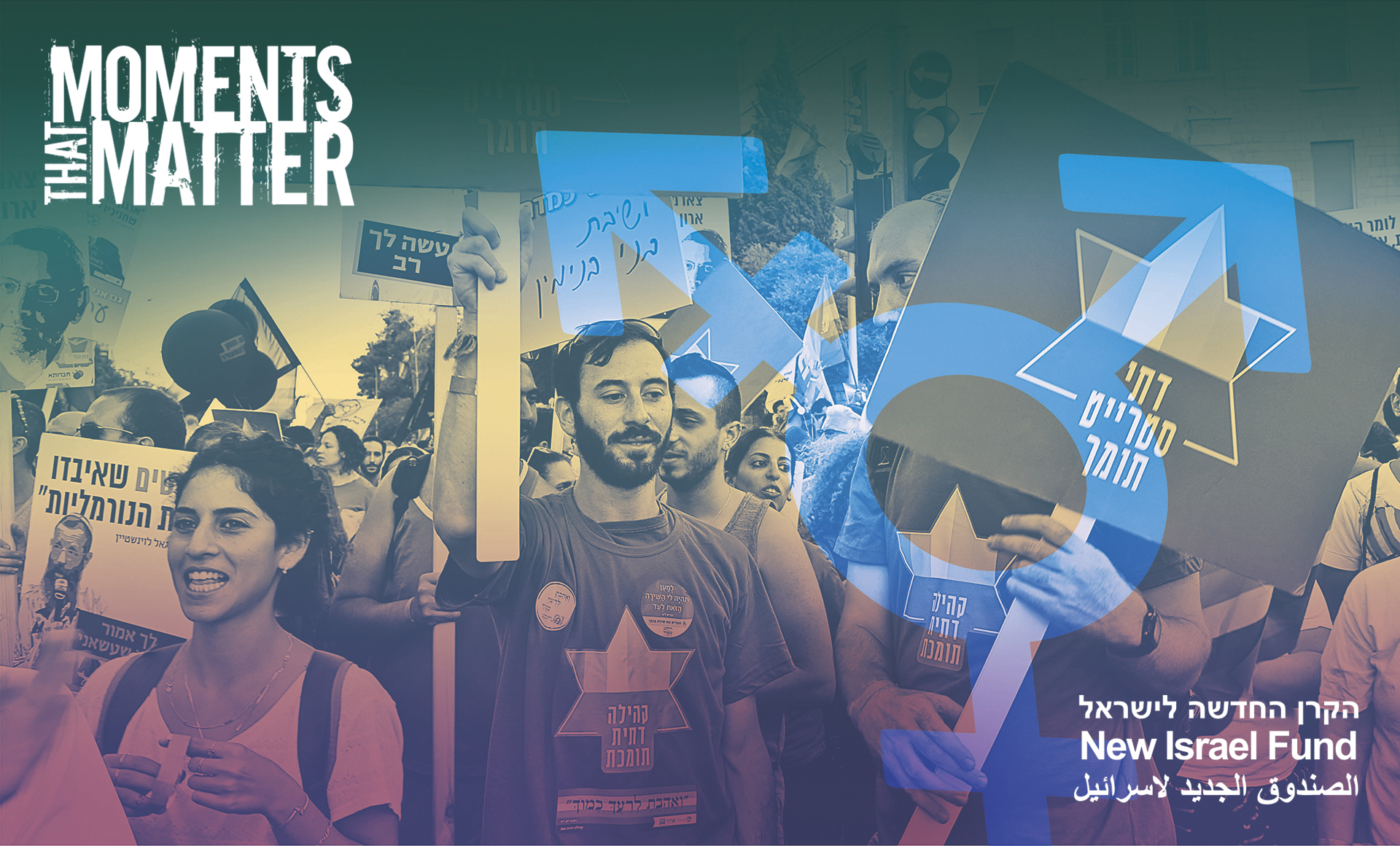
What happens when religious extremists seek to deny gay rights in Israel?
Hateful rhetoric from religious extremists galvanized Israelis to turn out for the Jerusalem March for Pride and Tolerance, more than quadrupling the crowd for two years running.
The Moment
In July 2016, Yigal Levinstein, a prominent rabbi, criticized LGBTQ inclusion in the military, calling LGBTQ people “deviants.” These hateful comments came against a backdrop of incidents like when IDF Chief Rabbi Eyal Karim had said that LGBTQ people were “sick or disabled.” Later that month, the mayor of Jerusalem yielded to extremist pressure and announced that he would not attend the city’s Pride March. This all happened one year after 16-year old Shira Banki was murdered by a religious extremist at Jerusalem Pride.
Just days before Jerusalem Pride, people were faced with a stark choice: let hateful rhetoric go unchallenged or stand up for inclusion. Israelis from a range of backgrounds—secular, religious, and everything in between— came to Jerusalem in droves to make a statement about the kind of society they want to live in: diverse, inclusive, and one that has room for everyone.
These progressive values, powerfully displayed at this moment, did not develop in a vacuum. They were the result of decades of investment in educators, advocates, and community leaders who have developed their own authentic moderate voices and are promoting democratic values in their communities.
We Responded
In cities like Tel Aviv or New York, pride parades are raucous celebrations. But in culturally conservative Jerusalem, the parade is a sober march for civil rights and tolerance. Jerusalem Pride is about LGBTQ rights and so much more – the character of Israel’s democracy, equality for all citizens, and respect for diversity.
That is an agenda that large numbers of Israelis can get behind. One year after Shira Banki was murdered by a religious extremist at Jerusalem Pride, the response from the Israeli grassroots could not have been clearer. Over 25,000 people attended the march, shattering the previous record of 5,000. Close to 1 million more participated from afar through NIF’s Facebook live-stream.
While Israelis of all backgrounds were represented, it was impossible to ignore the large number of religious people in the crowd. Thousands of religious Israelis demonstrated that the extremists don’t speak for them. NIF grantees like Tag Meir and Ne’emanei Torah Va’Avodah, whose work promotes tolerance in Israel’s Orthodox community, held afternoon prayers at the parade, and raised a powerful voice opposing bigotry in the name of religion.
The turnout in 2016 was not a passing fad, but rather a milepost in the forging of a sustained coalition that shows up for a better Israel. One year later, in July 2017, the Jerusalem March for Pride and Tolerance once again drew more than 20,000 marchers, including many Orthodox families.
We Were Ready
Defending liberal democracy cannot be the job of the secular left alone. When over 50% of Israeli Jews identify as either religious or traditional, the powerful and widespread influence of Judaism on Israeli society means that moderate religious voices are essential in our struggle for equality and social justice. That’s why NIF and Shatil support religious voices that have the credibility to promote democratic values.
Progressive Orthodox activists have shifted the conversation in their community and beyond. NIF grantees like Ne’emanei Torah Va’Avodah and Bat Kol-Religious Lesbian Organization have been at the forefront of pushing the religious public’s discourse towards greater openness and tolerance. NIF also seed-funded the Jerusalem Open House for Pride and Tolerance, the first LGBTQ center in Jerusalem, in the late 1990s and has continued to support the organization since. Their decades of organizing and educating laid the foundation for this moment that turned Jerusalem Pride into an annual gathering of unlikely new allies committed to liberal democracy.
When extremists overreach, as they did leading up to Jerusalem Pride, they open up opportunities for people to stand up for their beliefs. It is not a coincidence that when the lines were drawn between intolerance and empathy, members of the moderate Orthodox community were ready to take a stand. For NIF grantees working in the trenches and their supporters watching online, it was a moment that was years in the making and has continued to inspire. These partnerships between Orthodox and secular supporters of equality are growing stronger and are poised to carry this movement into the coming years.


